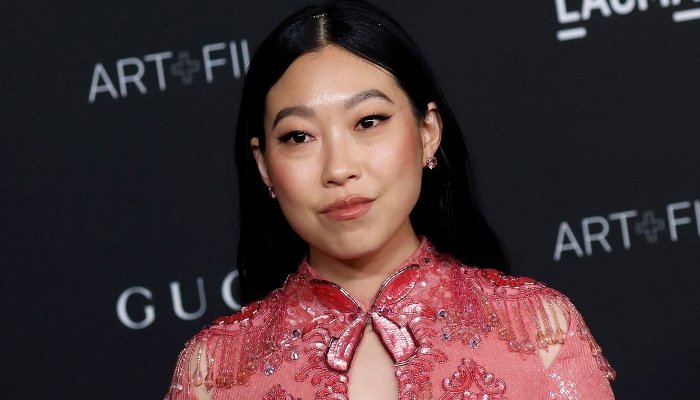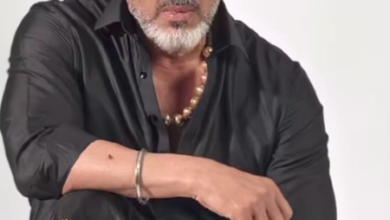Actress And Rapper Awkwafina Responds To Criticism Of Her Use Of ‘Blaccent’

New York, Feb 7: Following long standing criticism of her appropriation of the African American vernacular, rapper and actress Awkwafina has taken to Twitter to respond to her critics.
“The Shang Chi and the Legend of the Ten Rings” actress, born Nora Lum, has been accused by many of doing a caricature of black people in America by using “blaccent” in order to sound funny. Blaccent is a term which refers to a non-Black person using a stereotypical African American voice with allegations of cultural misappropriation.
The actress has faced criticism over her use of blaccent in some of her recent roles, most notably as Goh Peik Lin and Constance in “Crazy Rich Asians” and “Ocean’s 8”. She shared a lengthy statement on Saturday. In her statement she noted that “There is a sociopolitical context to everything, especially the historical context of the African American community in this country.” “It is a group that is disproportionately affected by institutionalized policies and law enforcement policies — all the while having historically and routinely seen their culture stolen, exploited and appropriated by the dominant culture for monetary gain without acknowledgment nor respect for where those roots come from, the pioneers of its beginnings and the artists that perfected and mastered the craft.
“Explaining further she said, “It is a problem we still see today — though some may pass it off as a convoluted mixture of the ‘internet TikTok slang generation’ that liberally uses AAVE, to add that hip hop — a genre of music that is ubiquitous and beloved across the country — has now anchored itself as a mainstream genre in music history.” “And in life, linguistic acculturation, immigrant acculturation, and the inevitable passage of globalized internet slang all play a factor in the fine line between offense and pop culture.” She further added “But as a non-Black POC, I stand by the fact that I will always listen and work tirelessly to understand the history and context of AAVE, what is deemed appropriate or backwards toward the progress of ANY and EVERY marginalised group.”
She added “But I must emphasise: To mock, belittle, or to be unkind in any way possible at the expense of others is: Simply. Not. My Nature. it never has, and it never was.”
She explained “My immigrant background allowed me to carve an American identity off the movies and tv shows I watched, the children I went to public school with, and my undying love and respect for hip hop,” she wrote.
“I think as a group, Asian Americans are still trying to figure out what that journey means for them — what is correct and where they don’t belong.”
“And though I’m still learning and doing that personal work, I know for sure that I want to spend the rest of my career doing nothing but uplifting our communities. We do this first by failing, learning, acknowledging, hearing and empathizing… And I will continue, tirelessly, to do just that.” In a follow up tweet she said”.
“I apologize if I ever fell short, in anything I did. You’re in my heart always,” she wrote. “To Clarify: I am retiring from the ingrown toenail that is Twitter. Not retiring from anything else, even if I wanted to, and I didn’t drunkenly hit someone with a shoehorn and now escaping as a fugitive. Also am avail on all other socials that don’t tell you to kill yourself!”
The statement so far has been her strongest response to her long critics, who have criticized her for her heavy use of “blaccent” throughout her career: from her early hit NSFW parody rap song “My Vag” to her more recent acting roles in the big-budget films “Crazy Rich Asians” and “Ocean’s Eight.”
The issue has broadly been seen as a part of the ever-evolving debate around cultural appropriation, or the act of adopting customs from another culture without the proper level of respect or acknowledgment. The reception to her statement has been polarizing however, with many calling the statement a ‘non apology’, though a succession of comments said that she had done nothing wrong and “didn’t owe anyone an explanation for anything” with some even labeling it as a non issue, calling the process as natural blend of cultures in a multi cultural society.






